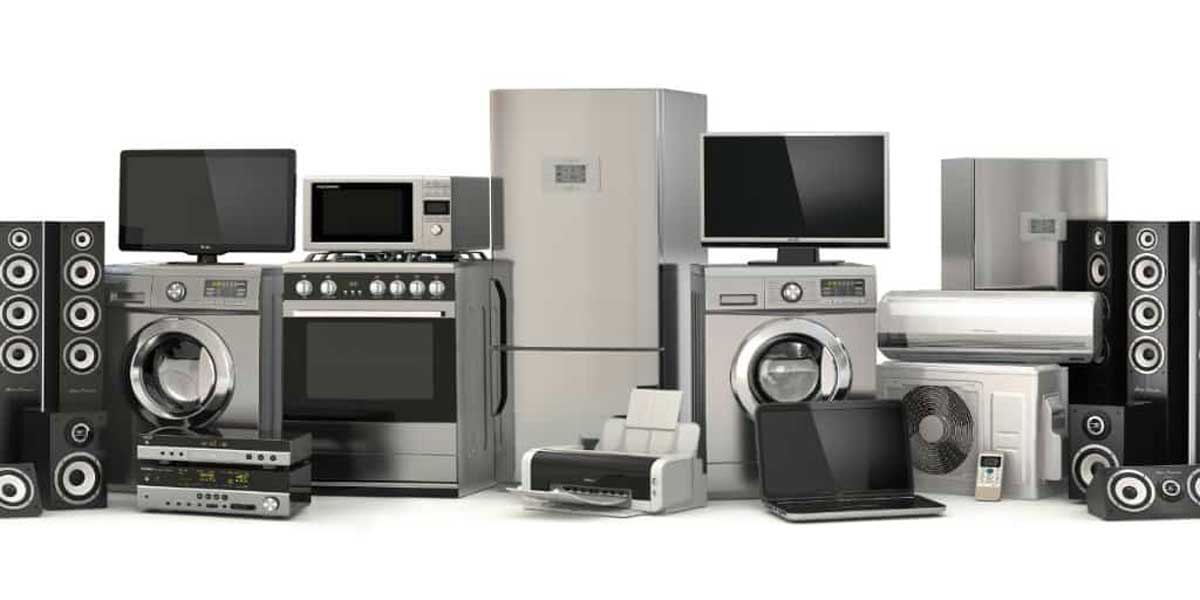Can you imagine life without home appliances? It would be a mess.
Much of our daily grind is dependent on these machines. From brewing a perfect cup of coffee to cooking your meals to getting your clothes washed, these appliances simplify our domestic life. It’s easy to overlook their existence and importance until a unit conks out. Your entire day can get disrupted in case an appliance fails.
To avoid these unwanted disruptions, you should buy an appliance that is safe, quality, and durable. Manufacturers and sellers show their confidence in their product by offering appliance warranty.
What is a home appliance warranty?
According to Investopedia, warranty is a type of guarantee that manufacturers make regarding the condition of their product. It protects consumers against the potential cost of repair or replacement in case the unit fails to function as specified or intended.
Basically, it protects consumers against questionable products. It also ensures that the appliances you buy actually serve their purpose – that is, to make home life easier.

Four types of warranties
There are different types of warranties that include written, spoken, warranty pieces, and implied warranties.
Typically, major purchases come with written warranties although this is not required by law. It outlines the duration of the coverage, conditions, and limitations on the warranty, service provider, and obligations of both parties. Spoken warranties are verbal assurances that the seller promises. However, this should be translated into writing to formalize the conditions.
Warranty pieces or “extended warranties” are service contracts that can be availed. It covers maintenance and/or repair for a given period, usually more than the typical warranty period. Finally, implied warranties are mandated by state or federal laws. When you buy an appliance, it comes with an unwritten guarantee from the seller that the product will work as it is intended to; unless it is specifically stated that it comes without warranty. It is for this reason that you can file a complaint under your state consumer protection office, in case problems arise with your home appliance.
The Federal Trade Commission mandates that warranties be made available to consumers before purchase, either when buying online or in-store. Although state laws have specific regulations regarding appliance warranty, their coverage may vary depending on the manufacturer. This makes it important to read the fine print before making the purchase.
5 Things you should know about home appliance warranty
1. You need to show proof of purchase
To be eligible for the warranty, you need to establish proof that the appliance was indeed bought from the seller or manufacturer. Make sure to save a copy of the receipt, invoice, or any other proof of sale. The repair technician requires this copy for him to claim fees from the manufacturer. In case, the manufacturer refuses to pay, you’ll have to pay for it.
2. You need to register your appliance
Technicians at Hartman’s appliance repair Jacksonville recommend that consumers immediately register their appliance upon purchase. Usually, manufacturers maintain a database of all the appliance units they sell. It simplifies the verification process. With a properly registered product, you are still eligible for the warranty even if you already lost the receipt.
3. Not all repairs and services are covered
Warranty programs do not cover all issues of an appliance. In general, the scope is limited to manufacturing defects or those that are directly attributable to its manufacture. It does not cover certain situations, such as:
- damages due to improper installation, misuse, handling, and repair;
- problems arising from overuse of the product, particularly premature wear-and-tear;
- defects due to attempts of doing repairs or work of an unauthorized technician; and
- exterior damages caused by transport, like dents, scratches, and chips.
Many appliance owners are unaware of the warranty conditions. As a result, they tend to overuse the product and end up voiding the warranty. If this happens, you will have to pay for the entire cost. The manufacturer is not liable to you. To avoid this, carefully read the appliance warranty and understand its conditions and do not breach them.
4. Repairs are done by a third-party provider
The checking, maintenance, and repair of the appliance are done by a third-party company. The authorized technician provides services that are within the bounds of the scope of work approved by the manufacturer. You cannot demand a replacement unit from the authorized service center. Likewise, they cannot give an extension for your coverage. In case you require services that are not covered by the warranty, you will need to pay for them.
Many appliance owners pour their frustration (and anger) towards the authorized technician. Remember that they are just contracted by the manufacturer and are an independent company. Their goal is to get your appliance up and running. Spare them from your wrath and course your dissatisfaction directly to the manufacturer.
5. Manufacturers have designated repair companies
Not all service companies provide in-warranty services. If an unauthorized technician repairs your appliance, you will pay for all services rendered. You will also be unable to claim it from the manufacturer. So, before you book an appointment with any service company, make sure it is authorized by the manufacturer. Ask the repair company what services are covered by the warranty that they can provide. Better yet, contact the retailer and ask for a list of authorized providers.
These are some key points on home appliance warranties that many owners are unaware of. Hopefully, this list will help you avoid problems when it comes to getting warranty service.

